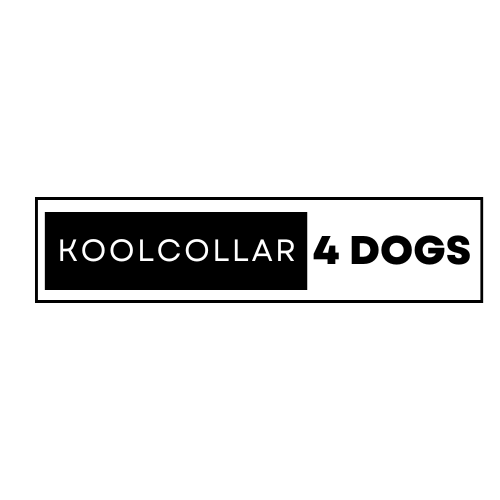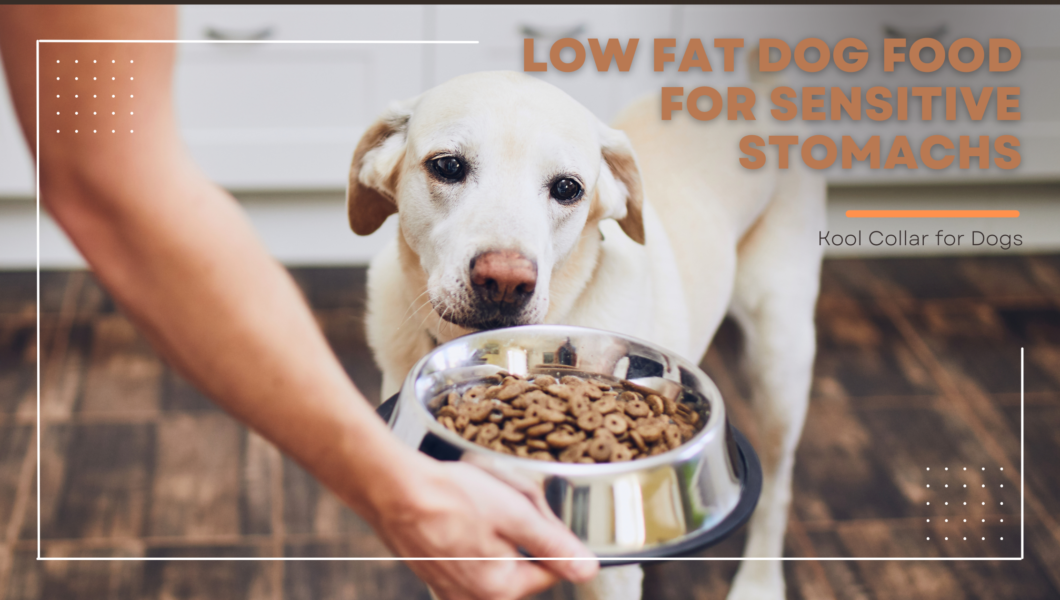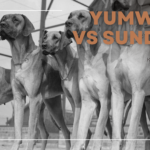The importance of a low fat diet for dogs with sensitive stomachs
As a devoted pet parent, ensuring your furry companion’s well-being is a top priority. For dogs with sensitive stomachs, selecting the right best low fat dog food for sensitive stomachs can make a world of difference in alleviating discomfort and promoting overall health. A low-fat diet is often recommended for these canine companions, as it can help reduce the strain on their digestive system and prevent potential flare-ups.
Sensitive stomachs in dogs can stem from various factors, including food allergies, inflammatory bowel disease, pancreatitis, or simply a delicate digestive tract. Excessive fat in their diet can exacerbate these issues, leading to unpleasant symptoms such as vomiting, diarrhea, and abdominal pain. By opting for a low-fat dog food formula, you can provide your pup with the necessary nutrition while minimizing the risk of gastrointestinal distress.
Moreover, a low-fat diet can aid in weight management, which is crucial for dogs prone to obesity or those recovering from pancreatitis. Excess weight can compound digestive issues and contribute to additional health problems. By carefully selecting a low-fat dog food tailored to your canine companion’s needs, you can help them maintain a healthy weight while supporting their sensitive tummy.
Comparing yumwoof vs sundays: Which is the Ultimate Choice for Your Pet’s Nutrition?
Factors to consider when choosing low fat dog food for sensitive stomachs
When navigating the world of low-fat dog food options, several factors come into play. Considering these elements can help you make an informed decision and find the perfect fit for your furry friend.
- Protein Source: Pay close attention to the protein source in the dog food formula. Lean proteins like chicken, turkey, or fish are typically easier to digest and less likely to cause digestive upset compared to high-fat protein sources like beef or pork.
- Fat Content: Look for dog food formulas with a low-fat content, typically around 10% or less. This reduced fat level can help minimize the strain on your dog’s digestive system and prevent potential flare-ups.
- Fiber Content: Adequate fiber is essential for maintaining a healthy digestive system. Look for dog food formulas that contain moderate levels of soluble and insoluble fiber, as they can aid in regulating bowel movements and promoting overall digestive health.
- Carbohydrate Sources: Opt for dog food formulas that use easily digestible carbohydrate sources, such as rice, oats, or potatoes. These ingredients are less likely to cause gastrointestinal distress compared to complex carbohydrates or fillers.
- Life Stage and Breed Size: Consider your dog’s life stage and breed size when selecting a low-fat dog food formula. Puppy, adult, and senior dogs have different nutritional requirements, and larger breeds may require different calorie and nutrient levels than smaller breeds.
Key ingredients to look for in low fat dog food
When searching for the ideal low-fat dog food for your sensitive pup, it’s essential to scrutinize the ingredient list. Certain ingredients can promote digestive health and provide the necessary nutrients while minimizing the risk of gastrointestinal upset.
- Lean Proteins: Opt for dog food formulas that feature lean protein sources like chicken, turkey, fish, or egg as the primary ingredient. These proteins are typically easier to digest and less likely to cause digestive issues compared to high-fat proteins like beef or pork.
- Digestible Carbohydrates: Look for easily digestible carbohydrate sources, such as rice, oats, or potatoes. These ingredients can provide essential energy while minimizing the risk of gastrointestinal distress.
- Prebiotics and Probiotics: Prebiotics and probiotics can support a healthy gut microbiome and promote optimal digestion. Ingredients like beet pulp, chicory root, and specific probiotic strains can be beneficial for dogs with sensitive stomachs.
- Omega Fatty Acids: While you’ll want to limit overall fat content, look for dog food formulas that include a moderate amount of omega-3 and omega-6 fatty acids. These essential fatty acids can support skin and coat health while also providing anti-inflammatory benefits.
- Natural Antioxidants: Antioxidants like vitamin E, vitamin C, and various plant extracts can help support a healthy immune system and promote overall well-being, which is particularly important for dogs with sensitive stomachs.
Common allergens to avoid in dog food for sensitive stomachs
For dogs with sensitive stomachs, certain ingredients can act as potential allergens, exacerbating digestive issues and causing discomfort. To minimize the risk of adverse reactions, it’s crucial to be aware of common allergens and avoid them in your dog’s diet.
- Dairy Products: Many dogs have difficulty digesting lactose, the natural sugar found in milk and dairy products. Avoid dog food formulas that contain dairy ingredients like milk, cheese, or whey.
- Wheat and Grains: Grains like wheat, corn, and soy are common allergens for dogs and can contribute to digestive problems. Look for grain-free or limited-ingredient dog food formulas to reduce the risk of allergic reactions.
- Beef and Beef By-products: Beef is a common protein source in many dog foods, but it can also be a potential allergen for some dogs. Consider opting for alternative protein sources like chicken, turkey, or fish.
- Artificial Preservatives and Additives: Artificial preservatives, colorings, and flavors can be difficult for dogs with sensitive stomachs to tolerate. Opt for dog food formulas that use natural preservatives and avoid unnecessary additives.
- Fillers and By-products: Low-quality fillers and by-products, such as corn gluten meal, wheat middlings, or meat and bone meal, can be challenging to digest and may contribute to gastrointestinal issues. Stick to dog food formulas that prioritize high-quality, easily digestible ingredients.
Read Best Eco friendly dog food
Reading and understanding dog food labels
Navigating the world of dog food labels can be a daunting task, but it’s crucial to understand the information provided to make an informed decision. By deciphering the labels, you can ensure that you’re selecting a low-fat dog food formula that meets your furry friend’s specific dietary needs.
- Ingredient List: The ingredient list is the most important section to scrutinize. Ingredients are listed in descending order by weight, so the first few ingredients should be high-quality protein sources and easily digestible carbohydrates. Avoid formulas with excessive fillers, by-products, or artificial additives.
- Guaranteed Analysis: This section provides the minimum or maximum percentages of key nutrients, such as crude protein, crude fat, crude fiber, and moisture content. Look for a formula with a low crude fat percentage, typically around 10% or less, for dogs with sensitive stomachs.
- Calorie Content: The calorie content information is essential for managing your dog’s weight and ensuring they receive the appropriate amount of energy. Dogs with sensitive stomachs may require a lower-calorie diet to prevent potential digestive issues.
- Feeding Guidelines: Follow the feeding guidelines provided on the label, but remember that these are general recommendations. Adjust the portion sizes based on your dog’s individual needs, activity level, and any specific dietary requirements.
- Certifications and Claims: Look for certifications from reputable organizations like the Association of American Feed Control Officials (AAFCO) or claims like “complete and balanced” or “formulated to meet AAFCO nutrient profiles.” These indicate that the dog food formula meets certain nutritional standards.
Reviews and recommendations for the best low fat dog food brands
When it comes to selecting the best low-fat dog food for your sensitive pup, it’s essential to consider the experiences and recommendations of fellow pet parents. Consulting reviews and seeking advice from trusted sources can help you make an informed decision and find a formula that truly meets your furry friend’s needs.
Here are some highly recommended low-fat dog food brands that have garnered positive reviews from pet owners with dogs with sensitive stomachs:
- Purina Pro Plan Sensitive Skin & Stomach: This formula from Purina Pro Plan is specifically designed for dogs with sensitive skin and stomachs. It features high-quality protein sources like salmon and rice, as well as prebiotic fibers to support digestive health.
- Hill’s Science Diet Sensitive Stomach & Skin: Hill’s Science Diet offers a specialized formula for dogs with sensitive stomachs and skin. It contains easily digestible ingredients like rice, pork, and egg, as well as omega fatty acids for skin and coat health.
- Blue Buffalo Basics Limited Ingredient Diet: Blue Buffalo’s Basics line offers a limited-ingredient formula with turkey as the primary protein source. It’s free from common allergens like wheat, soy, and dairy, making it a great option for dogs with food sensitivities.
- Merrick Grain-Free Real Chicken & Sweet Potato Recipe: Merrick’s grain-free formula features real deboned chicken as the first ingredient, along with sweet potatoes and peas for digestible carbohydrates. It’s also free from artificial preservatives and colors.
- Wellness Simple Limited Ingredient Diet: Wellness Simple offers a variety of limited-ingredient formulas, including turkey and potato or lamb and oatmeal recipes. These formulas are designed to be easily digestible and free from common allergens.
Remember, every dog is unique, and what works for one may not work for another. It’s always best to consult with your veterinarian before making any significant dietary changes, especially for dogs with sensitive stomachs or specific health conditions.
Buy Low fat dog food for your sensitive stomachs: If your furry companion struggles with a sensitive stomach, investing in a high-quality, low-fat dog food formula can make a significant difference in their overall well-being. By carefully selecting a formula tailored to their specific needs, you can help alleviate digestive discomfort and provide them with the necessary nutrition for a happy, healthy life.
Transitioning your dog to a new low fat diet
Introducing a new diet to your furry friend, especially one with a sensitive stomach, requires a gradual and thoughtful approach. Abrupt dietary changes can potentially cause digestive upset and discomfort, undoing the very reason you’re switching to a low-fat dog food formula. Follow these steps to ensure a smooth transition:
- Consult with Your Veterinarian: Before making any significant dietary changes, it’s essential to consult with your veterinarian. They can provide personalized advice based on your dog’s specific health condition, age, and breed, ensuring a safe and effective transition.
- Introduce the New Food Gradually: Start by mixing a small amount of the new low-fat dog food with your dog’s current diet. Over the course of a week or two, gradually increase the proportion of the new food while decreasing the amount of the old food. This gradual approach allows your dog’s digestive system to adjust to the new ingredients.
- Monitor for Potential Reactions: During the transition period, closely observe your dog for any signs of digestive distress, such as vomiting, diarrhea, or excessive gas. If you notice any concerning reactions, slow down the transition process or consult with your veterinarian for further guidance.
- Maintain Hydration: Ensure that your dog has access to fresh, clean water at all times. Adequate hydration is crucial during dietary transitions and can help support digestive health.
- Be Patient and Consistent: Transitioning to a new diet can take time, and every dog will adjust at their own pace. Be patient and consistent with the process, and avoid abrupt changes or reverting to the old diet unless absolutely necessary.
Remember, a successful transition to a low-fat dog food formula can significantly improve your furry friend’s digestive health and overall well-being. With patience, consistency, and guidance from your veterinarian, you can provide your pup with the best possible nutrition for their sensitive tummy.
Additional tips for managing a dog with a sensitive stomach
While selecting the right low-fat dog food formula is crucial for managing a sensitive stomach, there are additional tips and strategies that can further support your furry friend’s digestive health:
- Stick to a Consistent Feeding Schedule: Establishing a regular feeding routine can help regulate your dog’s digestive system and minimize potential flare-ups. Avoid free-feeding or leaving food out all day, as this can lead to overeating and digestive issues.
- Provide Appropriate Portion Sizes: Overfeeding can exacerbate digestive problems, even with a low-fat diet. Follow the recommended portion sizes on the dog food label and adjust as needed based on your dog’s age, activity level, and body condition.
- Limit Treats and Table Scraps: While it’s tempting to share human foods with your furry companion, many of these treats and table scraps can be high in fat and difficult for sensitive stomachs to digest. Stick to low-fat, easily digestible treats specifically formulated for dogs.
- Encourage Regular Exercise: Moderate exercise can help promote regular bowel movements and support overall digestive health. However, avoid strenuous activity immediately after meals, as this can potentially cause digestive upset.
- Consider Probiotics or Digestive Enzymes: Consult with your veterinarian about the potential benefits of adding probiotics or digestive enzymes to your dog’s diet. These supplements can help support a healthy gut microbiome and improve nutrient absorption.
- Manage Stress and Anxiety: Stress and anxiety can contribute to digestive issues in dogs. Provide a calm, comfortable environment for your furry friend, and consider introducing stress-relieving activities like gentle playtime or relaxing massages.
- Monitor for Potential Food Intolerances: Pay close attention to your dog’s reactions to different ingredients in their diet. If you notice recurring digestive issues after introducing a new food or treat, it may be an indication of a food intolerance or allergy that requires further investigation.
By combining a well-formulated low-fat dog food with these additional management strategies, you can help your furry friend navigate their sensitive stomach and enjoy a happier, healthier life.
Conclusion
Choosing the right low-fat dog food for your furry companion with a sensitive stomach is a crucial step in promoting their overall well-being. By understanding the importance of a low-fat diet, considering key factors and ingredients, and avoiding common allergens, you can make an informed decision that caters to your pup’s unique dietary needs.
Remember, transitioning to a new diet requires patience and a gradual approach, and additional tips like maintaining a consistent feeding schedule, providing appropriate portion sizes, and managing stress can further support your dog’s digestive health.
With the guidance of your veterinarian and the knowledge gained from this comprehensive guide, you can confidently navigate the world of low-fat dog food options and find the perfect formula that nourishes your furry friend while minimizing digestive discomfort.
Prioritize your pup’s well-being, and embrace the journey of providing them with the best possible nutrition for their sensitive tummy. A happy, healthy dog is the ultimate reward for your dedication and care.



